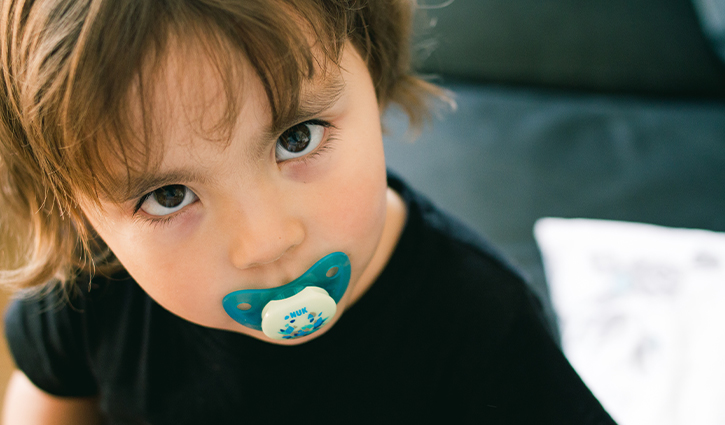

Are you wanting to wean your toddler from their dummy? Perhaps because it’s impacting their teeth or speech, or for any other reason, it can be a really difficult process for both of you, no matter how attached they are to it.
However, with Easter just around the corner, it could be the perfect time to help your toddler give up their dummy.
You could ditch the dummy ‘cold turkey’ but this approach is often hard on most little ones, particularly those who are sensitive to change or heavily rely on their dummy to help soothe them.
For some children, going cold turkey might work better than gradually weaning off it, so if you opt for this method, do so without any guilt attached because ultimately whatever works best will benefit everyone involved long-term.
If you think a more gradual and fun approach is more suited to your child, then leaving the dummies for the Easter Bunny can help to make this big transition much easier for them.
With some imagination, preparation, and understanding, here’s how to support your little one to give up their beloved dummy this Easter.
How to gently wean a toddler from their dummy this Easter
Incorporating play, make-believe, and storytelling, along with communication and emotional support will make this change easier. Here is how to help your toddler give up the dummy this Easter:
Communicate about it in a toddler-friendly way
Talk with your toddler about giving up their dummy before actually removing it. Toddlers make sense of their world and process their emotions through play.
So, for instance, you could facilitate some role play using their favourite soft toys to give up their dummies. Recreate the scenario that you have planned for your child. This might be a teddy going to bed without their dummy after leaving it for the Easter Bunny, who then leaves them a special gift.
Use storytelling
To help them understand it more and visualise what’s going to happen, head to your local library or look online for books about weaning from the dummy, such as ‘No more dummies’ and ‘Daniel and the dummy fairy’ (your toddler might choose to have a fairy collect the dummies instead of the bunny). You could even make up your own storybook and personalise it for your child, using images of them.
Offer a substitute
Whenever we take away something that a child finds comforting, it’s usually beneficial (and kind) to replace it with something else. Sucking on a dummy is very soothing and regulating to the nervous system.
Find some things that provide this type of oral sensory input throughout the day (as developmentally appropriate). Examples include chewing on crunchy (e.g. raw apples, carrots) or chewy (e.g. dried fruit) foods, blowing bubbles, or drinking water from a straw.
From a comforting perspective, you could introduce a comforter or transitional object (read this for ideas) or reinforce one they currently already have by using it during feeds, incorporating it in play, and giving it extra love throughout the day. If they use a dummy to fall asleep, you may need to comfort them another way for now.
Collect the dummies
Have fun collecting all of your child’s dummies together ahead of time. Make it into a game or tell them stories about how faraway places may also have special bunnies who need dummies too. Then put them all in an envelope or box ready for Easter Bunny on the night before Easter Sunday.
Decorate and deliver
Get creative with decorating the envelope or box for these beloved treasures for the Easter Bunny – use paints or crayons and let your little one add stickers. Write messages, draw pictures, and then place it somewhere of their choosing, perhaps in front of their bedroom door or window so that when they wake on Easter morning there will be something extra special waiting from The Big White Bunny himself (or herself).
Support their emotions
There may be some accompanying emotions to this transition, which is normal, so the best thing you can do is to be their calm place. Be there for them, listen to them, and acknowledge, name, and hold space for those big feelings that will bubble over at some point (probably at bedtime!). Continue to hold the loving boundaries whilst showing lots of support and reassurance as their discomfort with this change gradually passes.
If you’re both finding this transition too distressing, perhaps it’s not the right time. Remember that a dummy is not a life-long habit. Try again in a couple of months, using that time to gently prepare them or to very gradually wean them off it at their pace.























